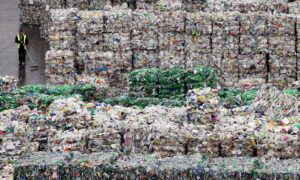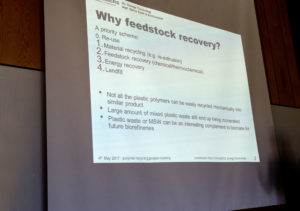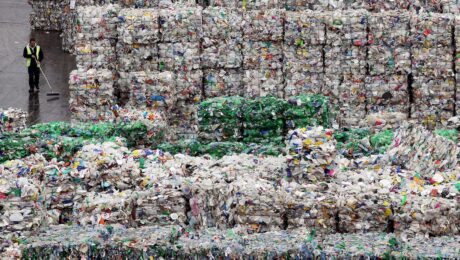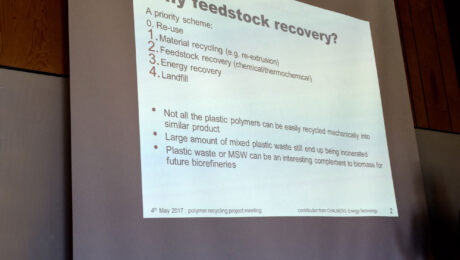European countries spend billions a year on fossil fuel subsidies, survey shows
Governments of 11 European nations are providing subsidies totalling more than £80bn a year to fossil fuel industries, green campaigners have claimed.
Transport fuels account for the lion’s share of the support to fossil fuels. Many of the 11 countries surveyed encourage drivers to use diesel as it produces less carbon per mile than petrol, despite the fuel’s effects on air pollution which is particularly harmful to children. For many years, governments had incentives to prioritise the use of diesel, as it helped them meet internationally-set carbon reduction targets.
A substantial amount of the claimed subsidies are for fuels such as gas, which is viewed by many as a transition away from more carbon-intensive fuels such as coal.
Taxpayer support for electric vehicles, renewable electricity and other low-carbon efforts were not counted in the study by the Overseas Development Institute (ODI).
In the UK, diesel fuel is taxed by volume at the same rate as petrol. This taxation can favour the dirtier fuel because diesel cars travel further than petrol vehicles on the same volume of fuel.
Half of the support provided to fossil fuels was targeted at low-income households, the report acknowledged. Such measures by governments are intended to protect people on low incomes from fuel poverty. Nearly €5bn of the overall support was provided in this way by the UK government alone.
Shelagh Whitley, head of climate and energy at the ODI, said: “The air pollution crisis in cities across Europe and the recent diesel emissions testing scandal have rightly led to increased pressure for governments to act [on air quality]. Yet our analysis shows European countries are providing enormous fossil fuel subsidies to the transport sector.”
“This study shows how governments in Europe and the EU continue to subsidies and finance a reliance on oil, gas and coal, fuelling dangerous climate change and air pollution with taxpayers’ money.”
Source – The Guardian Read the full article – click here

Stop exporting plastic waste to China to boost recycling at home, say experts
Governments must end incentives that see plastic waste shipped abroad, where it may be buried or burned, rather than being turned back into bottles at home, say industry leaders
Governments must stop exporting so much plastic waste to countries such as China and keep more in-country to be recycled into bottles to tackle the waste crisis, industry insiders say.
A day after the Guardian revealed that a million plastic bottles are bought every minute across the world, experts aiming to provide a closed loop in which each bottle is used to make a new one, say their industry faces multiple hurdles.
Chris Brown of Clean Tech, based in Lincolnshire – the only site in the UK which produces food grade recycled polyethylene terephthalate (Pet) from plastic bottles to turn them into new bottles – said: “It has been a very challenging environment.”
“The recycling of Pet back into rPet (recycled plastic) is a relatively new industry and it has proven very difficult for any businesses to survive in recycled plastics. The margins are such that they struggle to be successful, particularly when the processes require large capital investment and present a significant technological challenge.”
He called for the UK government to end the incentives for export of post consumer plastic to China and other countries – more than two-thirds of plastic collected for recycling in the UK was sold abroad in 2016, where it may be incinerated or buried rather than recycled according to industry experts quoted by Greenpeace.
“Being able to keep more of that material in this country would be better for the bottle manufacturers and their customers,” he said. “It is important that the feedstock is available for rPet producers, so what we would like to see is an end to the incentivising of its export. Having an incentive to export the bales instead of keeping them in the country to be used to make more plastic bottles does not seem like what we should be doing at the moment.”

FEEDSTOCK RECYCLING WORKSHOP
The workshop was held at Johannesberg Science
Park at Chalmers in Gothenburg.
The workshops focus is to find viable ways for
molecular recovery (so-called feedstock recycling).
The goal within this project is to find solutions to recycle different grades of plastic
into new sustainable raw materials and circular materials with product characteristics
that correspond to the markets need and requirements. This is important in order to
increase recovery, circularity and reduce the dependence of fossil raw materials.
The participants in workshop/project are a broad mix of representatives from
universities, waste management companies, petrochemical industry, municipalities
and several companies from the private sector.
Within this “Feedstock Recycling Project” the ambition is to find answers on if
there is enough interest and knowledge to drive a future test bed and how it should
be designed in the form of technology and business model. The outcome/result will
be presented in a report for decision makers from both the public and private sector.




